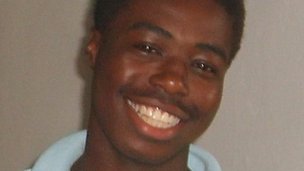Two of the Today guest editors bucked a familiar BBC trend. Two in a row. Yesterday Tracey Emin courageously admitted that she Voted Tory, (gasp) and our Thursday, Jewish guest editor chose to explore leadership with special reference to the Middle East, whereupon Sarah Montague, the BBC’s premier advocate of the “talk to Hamas strategy’ was dispatched to interview Tony Blair. Tony Blair may not be everyone’s favourite person, but having settled into his post as Middle East Peace Envoy it started to look, to some people, as if he was gradually discovering what was going on.
One wonders whether he felt, like Tracey Emin, that it was difficult to bare his soul openly to the Today audience without obsequiously justifying himself, because some of his answers seemed designed to pre-emptively appease a cynical reception. For example:
“There will always be incidents that go, …it might be acts of terrorism…. it might be raids that go wrong. There will always be reasons why people retreat to their comfort zone and say “I’m not dealing with these people”
Which sounded as though he too was contemplating the inevitability of the Talk to Hamas strategy. Then again, on Israel’s security problem. Because, thanks in no small measure to the BBC, the separation wall has acquired notoriety as a disingenuous excuse for land grab, rather than what it really is, a lifesaving protective barrier against terrorism.
“Look. The Israelis worry hugely about their security.
And their security worry is a genuine worry.
They haven’t just made it up.
They have their genuine security problem.”
Please believe me, he almost pleaded. I do protest! Then he continued with a bizarre and startling example of moral equivalence.
“As a result of that they go into the Palestinian areas. As a result of that many Palestinians feel the weight of the occupation upon them. That makes them more angry; they therefore want to retaliate.
The Palestinians have a genuine worry. particularly with things like settler violence starts [sic] on the increase, they think ‘will these guys ever get out and let us run our state.”
Who is ‘retaliating’ and who is ‘instigating’ here? Let’s leave that aside though, and ask, is Tony Blair really equating ‘settler violence’ with suicide bombings, murderous assaults and rocket attacks on civilians? By jove, it seems he really is.
Sarah moved the discussion on.
“Let’s move on the western leadership because that’s the other big player. I wonder to what extent western leadership has made things more difficult. We encouraged the Palestinian elections. The EU funded them. But when there was an outcome that we didn’t like, which was Hamas being elected, we withdrew aid, and we ignored the result. And I wonder when you look back at what has happened in the past year across the Middle East, and you wonder whether that was a mistake?”
Having avoided looking at the Israeli or the Palestinian leaderships, what was on Sarah’s mind was the Arab Spring. But Tony Blair wasn’t quite finished. He was referring in some way to the IRA, and apparently warming to the idea of talking to Hamas.
“I think historically the difficulty of the west has always been, and you know, we faced the same difficulties with the IRA, the circumstances where people are not foreswearing the use of terrorism to advance their political objectives, can you interact with them or not? I actually think there is an opportunity now, with what is happening across the region, because after all, frankly we will be dealing with the Muslim Brotherhood, and Hamas are associated with them all over the region. Now, I think if Hamas were prepared to at least say ‘look, so far as we’re concerned we’ll pursue our political objectives, but by non violent means, I think that would give you a far greater opportunity of creating circumstances in which you get all of the Palestinian parties in some sort of dialogue.”
Good luck with that. Good luck with Hamas pursuing its political objectives by non violent means. Perhaps a polite notice of eviction will do the trick. Dear Israel, kindly vacate the premises, Yours sincerely, Ismail Hanyieh. Or perhaps not.
Sarah persists.
“We’ve slightly been forced into this because as you say the Muslim Brotherhood now is actually looking like the more moderate of those
Islamist groups rising in Egypt, But back in parliamentary elections as far back as 2005 they did well, and yet we were still supporting and promoting Hosni Mubarak. I wonder whether we have been guilty of thinking that our self interest lies in supporting stability, and making sure that we’ve got intelligence on terrorism and we’ve prioritised that over promoting democracy, over our own values.”
Here the BBC’s real attitude is laid bare. We are, apparently, guilty of supporting despots and tyrants and ignoring peoples’ human right to democracy, and all for a selfish little bit of peace, stability and a tip off or two about potential acts of terrorism. It ignores the nature of Islam, and has done all along. It projects our concept of democracy onto people who haven’t been pressed to be explicit or specific about their aims and aspirations. Sarah criticises our desire for stability as though it was misguided. But isn’t that what the very people who are voting for the Muslim Brotherhood want for themselves, over and above many other things? Could that be part of the reason why they like the Muslim Brotherhood and why they voted for Hamas? Do they prefer order and certainty over chaos and uncertainty. They opt for the certainty of the Islamic conservatism with which they are familiar, over what they see as the decadent and directionless west. But nobody asks these questions.
Tony Blair is unable to say what he might really wish to. What I hope he really wishes to. He is constrained by political correctness and reluctance to risk alienating the audience, or perhaps because he really doesn’t know what he’s been dealing with all along, throughout his Peace Envoyship. He waffles, insinuates and emotes, but he doesn’t and can’t come out with an outright condemnation of Islamism or an explanation as to why our own concept of democracy might differ from that of the Egyptians, the Tunisians, the Libyans, the Syrians and the Palestinians.
And as for Sarah and the BBC, they still refuse to see what is in front of their noses.




